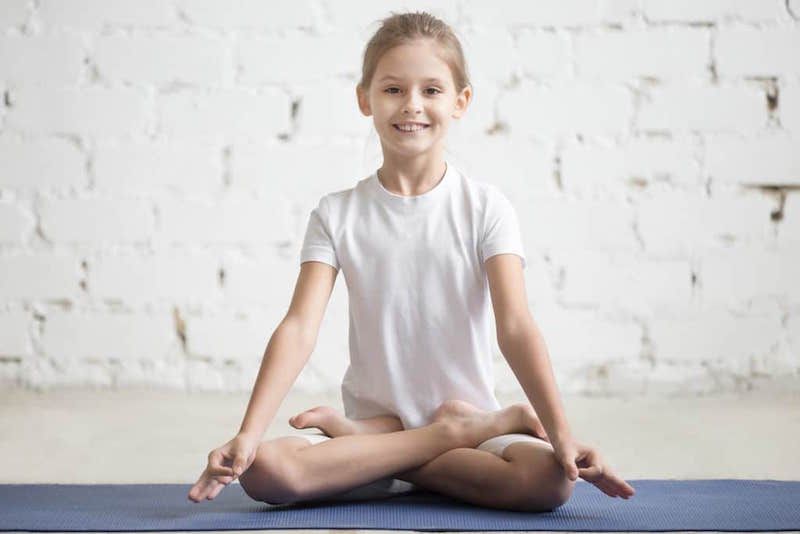Surprise you !! yoga in children

Children lying on the floor, with their eyes closed, in silence, listening to the music that plays in the background, with the blinds down. They are students who practice yoga during school hours. This is a common image in many Catalan schools after pedagogues and psychologists have found that yoga has multiple benefits for children. For example, practicing a few minutes a day brings children relaxation and tranquility in times of fatigue and excitement. According to the UOC experts, yoga improves memory, attention and learning, while making children aware of their own emotions.
The doctor in Clinical Psychology and Health Amalia Gordóvil, a psychologist at the GRAT center and a professor at the UOC's Psychology degree, mentions a 2015 study on the effects of teaching yoga in schools and concludes that this discipline establishes changes in the Humor, tension, anxiety, self-esteem and the memory of children. In addition, it also refers to another 2016 study on the benefits perceived by children themselves after practicing yoga for a year in New York City, in which students emphasize that they are able to self-regulate better, decrease the level of stress, strengthen self-esteem and improve physical condition and academic results.
Gordóvil sees yoga as a beneficial practice without adverse effects, which allows children to stop and know their own body. This is especially important because children "learn to detect changes in their breathing and in thoughts that can put them on alert", while at the same time making them aware of tools that can help them redirect a stressful situation, such as, for example, , change the rhythm of your breathing. "When children discover that they can direct their own emotions we are facing a victory, because it gives them autonomy and makes them feel capable and important," says the doctor.
The psychologist Coach Mireia Cabero, a collaborating professor of the UOC Psychology degree, explains that yoga develops in children the ability to connect with their own interiority. "Yoga promotes knowledge of the inner world," while "teaching stimulates and promotes knowledge of the outside world."
Yoga also allows children to stop, says Cabero. "Stop to be able to feel, reflect and breathe", a competence that considers basic to find "the balance and face the challenges of life". However, the expert concludes that children who practice yoga are better able to "manage their own emotions and relate more consciously with themselves, with others and with adversities."
Yoga helps students to know and manage their emotions
The relaxation and breathing techniques practiced by children in school also help to strengthen coexistence in the classroom, because they reduce the stress of the students and improve the relationship between them. The report FAROS of the Hospital Sant Joan de Déu ensures that working emotional education in class improves the school climate and the relationship between classmates and the teacher, and fosters skills and abilities very useful in the future.
For Professor Toni Badia, from the UOC's Studies in Psychology and Educational Sciences, «emotional education should be considered a priority in school education systems and, therefore, should be included in the educational project as a key element in the integral development of the person ». In primary education, he adds, the fact that a student reaches a high level in their emotional education will have a positive effect on some fundamental aspects of communicative, social and civic competences, and on the competence of autonomy and personal initiative.
Less stress and more concentrationProfessor Diego Redolar, from the UOC's Health Science Studies, explains that the brain is "critical" for the regulation of stress. Several studies suggest that meditation causes functional and structural changes in regions of the brain that suffer the effects of stress, such as the hippocampus and the prefrontal cortex. «Practicing this technique could help to minimize the effects that stress causes on the nervous system and, consequently, on our cognitive and emotional capacities», explains the neuroscientist of the UOC.
Experts suggest that the best age for the child to start practicing yoga is from three years of age and that should be practiced from the game. The introduction of these techniques in Catalan schools is relatively recent. In countries like the United States and France, they have been applied in schools and institutes for decades.
Congratulations @eudardoqpaz! You received a personal award!
Click here to view your Board
Congratulations @eudardoqpaz! You received a personal award!
You can view your badges on your Steem Board and compare to others on the Steem Ranking
Vote for @Steemitboard as a witness to get one more award and increased upvotes!